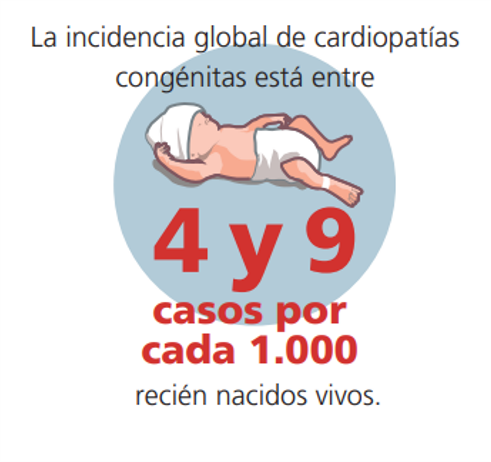The cardiovascular diseases (CVD) are those that affect the heart and blood vessels and are the leading cause of death worldwide, with around 520 million people affected. CVD include numerous and diverse pathologies, some of which are better known, such as myocardial infarction, heart failure or sudden death, but also other lesser known diseases, such as channelopathies or valvular heart disease. In general, the causes that lead to the appearance of CAD are many and very diverse.
What are cardiovascular risk factors?
Cardiovascular risk factors are factors that increase the probability of developing CAD or dying from them. They can be habits and lifestyles that are detrimental to the patient's health, such as smoking, stress, unhealthy diet, sedentary lifestyle, etc. that favor the appearance of other diseases such as obesity, diabetes and hypertension that will contribute to the appearance of CAD, or non-modifiable biological characteristics such as race, sex, age and genetic factors.
What are genetic factors?
Genetic factors, or genetic inheritance, refer to variants in the DNA of each individual that are a direct cause of the existence of a certain disease or that are predisposing variants, i.e. variants that increase the individual's risk of developing it.
Numerous genes are known to be involved in the functioning of the cardiovascular system, e.g. some are responsible for regulating blood vessel pressure, others are responsible for the contractility of the heart muscle, others are associated with cholesterol levels, etc. Overall, it is estimated that 15-20% of sudden deaths have a genetic cause.
How do genetics affect our cardiovascular health?
Genetics can influence our cardiovascular health in several ways:
- Through diseases associated with an increased risk of CD such as diabetes, obesity or hypertension, which have a known genetic basis.
- In the general population there are polymorphisms, that is, genetic variations that increase or decrease the risk of cardiovascular disease. These variations do not cause disease by themselves, but can increase the probability of suffering a cardiovascular event when combined with other risk factors.
- There are hereditary cardiovascular diseases, which develop due to mutations in specific genes.



Genetically based cardiovascular diseases: Congenital heart disease
The congenital heart disease are structural alterations affecting the heart or large arterial vessels caused by defects in the formation of the cardiovascular system during the embryonic period. Considering the multiple types of existing heart disease, it is estimated that they affect approximately 1% of live newborns.
Although most of them have a multifactorial cause, there are multiple genetically determined heart diseases, usually caused by pathological mutations in a single gene. Taken together, they are common diseases, affecting as many as 1 in 400 people in the general population.
In order to make a correct diagnosis, a multidisciplinary approach is necessary, in which cardiologists work with clinical geneticists to find the pathological variants that cause them.
- https://fundaciondelcorazon.com/
- José María Lobos Bejarano, Carlos Brotons Cuixart. Cardiovascular risk factors and primary care: assessment and intervention. Aten Primaria. 2011;43(12):668-677(2011) Elsevier Spain. doi:10.1016/j.aprim.2011.10.002
